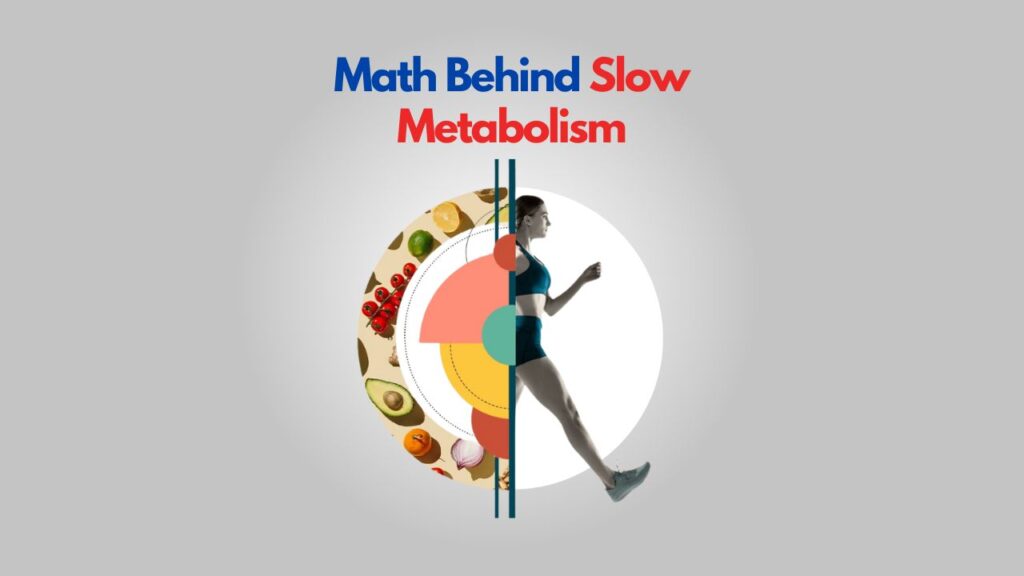
Dt. Carol
Bariatric Dietician & Content Writer
Math Behind Slow Metabolism - Aastha Bariatrics

There are those who cannot gain weight and others who cannot lose weight. This is caused by metabolism
The metabolism can control the fat stored throughout the body and regulates the body’s energy use through various sources
The body needs energy for daily activities such as breathing, thinking, heartbeat, cell movement and function. This type of energy expended is called resting energy expenditure or some people associate it with basal metabolic rate or BMR. This BMR and the energy used as resting energy can vary from person to person. Certain medications, hormonal imbalances or even obesity can slow down this energy expenditure and cause the body to conserve and store more energy.
When an obese person tries to lose weight, the body can take this as an insult and try to repair itself. that. This is called homeostasis and depends on several hormones such as thyroid hormones, testosterone, female hormones, leptin, insulin, hunger hormones, etc. Many of these hormones are also secreted by or affect fat cells. The stomach, intestines and digestive system play an important role in the secretion of these hormones and in controlling hunger, satiety, energy expenditure and ultimately weight.
Several studies have evaluated the changes that occur in the body when a person tries to lose weight. weight and they argue that your body is trying to regain the weight it has lost by changing its physiology and hormones to regain the weight. Therefore, people cannot control their eating while following a diet. This is due to a compensatory increase in the hunger hormone known as ghrelin. Unfortunately, this is misinterpreted as a lack of willpower.
People who are morbidly overweight have a slow metabolism. Excess weight can put pressure on the joints, causing pain and reducing mobility. Shortness of breath due to body weight while walking increases weight and it slowly becomes a vicious cycle. These patients usually have several attempts to lose weight followed by weight regain. Such patients with a slower metabolism can be treated with a procedure that can normalize the metabolism. Bariatric and metabolic surgeries are keyhole and daycare procedures that can correct metabolism and hormones and achieve weight loss that can be reasonably maintained for several years. It solves all weight-related ailments and makes life healthier and more enjoyable. Many patients begin to believe in this metabolic mechanism after seeing it, and some regret not having bariatric surgery sooner.
RMR is influenced by many factors such as genetics, body size, muscle mass, age, sex, weight, pregnancy. , hormonal status and yes, physical form. Each person’s caloric needs are determined by two factors: physical activity and resting metabolic rate (RMR). About a third of the calories you burn come from physical activity that involves something other than resting, such as brushing your teeth, folding clothes, working at the computer, walking the block, or working out at the gym.
The other two. -thirds, RMR, are burned through regular metabolic activity. This includes calories used to maintain the body’s basic functions: maintaining body temperature, heart rate, breathing, organ repair and basic chemical reactions. Since RMR accounts for the majority of calories burned, keeping it high is essential to losing weight.






